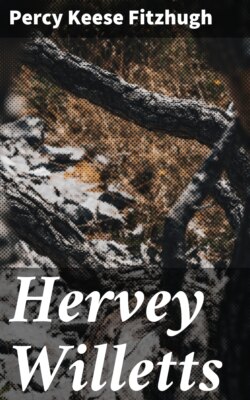Читать книгу Hervey Willetts - Percy Keese Fitzhugh - Страница 3
На сайте Литреса книга снята с продажи.
CHAPTER I
HAPPY-GO-LUCKY
ОглавлениеTable of Contents
If Hervey Willetts were lacking many qualities which a scout ought to have (and it is to be feared he was), he certainly had one quality truly scoutish; he had nerve. It was not the sort of nerve commonly recommended to scouts, but it was one kind.
And indeed Hervey had all kinds. He was always brave, he was often reckless, he was sometimes blithely heroic. But he was always wrong. His bizarre courage never paid him any interest because, somehow or other, it was always mixed up with disobedience. Thoughtful boys saw this and were sorry for him. More, they had a sneaking admiration for him.
Once, in the wee hours of the night, Hervey saved a boy from drowning. He should have had the gold medal for that; but you see he had no right to be out swimming in the middle of the night. And there you are.
All his spectacular deeds went to waste so far as scout advancement was concerned. The deed was always clouded by the escapade. And sometimes, as you shall see, there was an escapade containing none of the ingredients of heroism. Hervey’s heroic deeds were always byproducts.
He did not fit into Temple Camp at all. Why he had ever chosen it as the theatre for his stunts of glory was a puzzle. Many scouts, captivated by his effrontery, said kindly that Temple Camp did not fit into him. Assuredly there was misfit somewhere.
To give you an example of his nerve (and it is the episode on which this whole story hinges) he went back to Temple Camp the season following his summary expulsion therefrom. To appreciate the magnitude of his effrontery you must know something of the circumstance of his dismissal.
During that summer which had ended so ingloriously for him, he had pursued a course as free as life on the ocean wave. He was always in hot water. He would come strolling in late for meals, his outlandish little rimless hat at a rakish angle, swinging a stick or doing stunts with it for his own amusement as he ambled past the group assembled for camp-fire, or the after dinner stragglers lolling on the pavilion porch.
They seldom asked him where he had been. They knew he was on friendly terms with every farmer in the neighborhood, a crony at every rural wayside garage, the volunteer comrade of wandering pedlers, of gypsies, and even of tramps who made camp in secluded hollows and regaled him with dubious reminiscences. There was something about Hervey....
Yes, that was the worst of it; there was something about him. Tom Slade was under the spell, and if Tom Slade liked you, you could go a long way along the trail of disobedience. It was not that Hervey was popular, in the sense that Roy Blakeley was popular. He did not grace the camp with his presence enough to be popular.
But was it not an amazing thing that he was so much liked even though he was so seldom among the big camp family? He had no friends, yet everybody was his friend. If ever a boy was a host unto himself, as they say, Hervey Willetts was that boy. Certainly he was never lonesome.
You know him; he was slender and good looking, with a kind of dancing deviltry in his eyes. When they reprimanded him he looked at them as if he just did not understand. He was hopeless. There was an unconscious effrontery about him. The woods belonged to him. You could not scold him any more than you could scold a squirrel.
He certainly was not without feeling for he held in deep affection his little rimless hat cut full of holes and decorated with every sort of campaign and advertising button which had ever come his way. These little celluloid trinkets did not proclaim Hervey’s principles. One of them said Keep to the Right, a thing which Hervey never did. Another (I know not its origin, nor did he) said Be good and you’ll be happy.
Well, at all events, he was happy.
